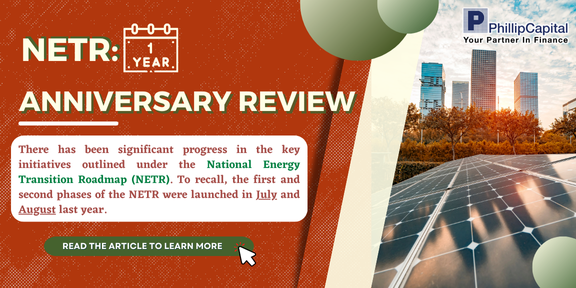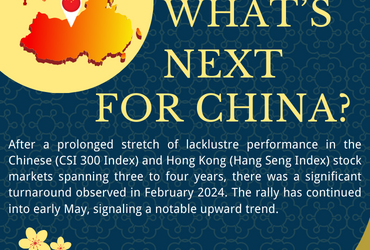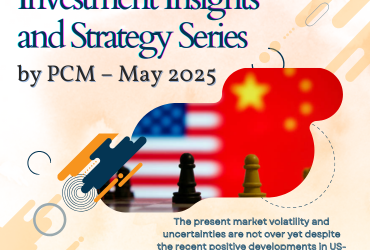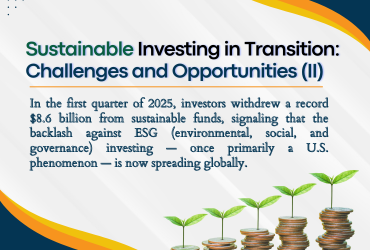
There has been significant progress in the key initiatives outlined under the National Energy Transition Roadmap (NETR). To recall, the first and second phases of the NETR were launched in July and August last year. The NETR is structured into two parts. The first part highlights 10 flagship catalyst projects and impact initiatives centered around six energy transition levers: energy efficiency, renewable energy (RE), hydrogen, bioenergy, green mobility, and carbon capture, usage, and storage (CCUS). The second part details the comprehensive roadmap, which includes 50 initiatives across these six energy transition levers and five enablers. Refer to the details in our previous article.
- NETR Launch – Steps towards Sustainable Green Economy
- NETR Launch – Steps towards Sustainable Green Economy (Part 2)
It has been a full year since the launch of NETR and we are seeing commendable progress. In particular, the recent launch of the Corporate Renewable Energy Supply Scheme (CRESS) is crucial for advancing the third-party access (TPA) mechanism, which is essential for promoting fair competition among RE producers and could significantly boost domestic RE capacity expansion. Also, the Energy Exchange Malaysia (ENEGEM) is also rolled out to drive energy exports to Singapore. ENEGEM acts as the marketplace to sell green electricity through a bidding mechanism operated by a single buyer Finally, various solar power projects are being actively rolled out, while feasibility studies on biomass clustering, as well as co-firing of ammonia and hydrogen, are currently underway. Note that the initiatives listed here are not exhaustive.
According to the NETR’s projection, by 2050, 70% Renewable Energy (RE) capacity will be dominated by solar at 58% of total installed capacity, followed by hydro and bioenergy at 11% and 1%. This indicates substantial potential for continued earnings growth among solar companies, particularly for Engineering, Procurement, Construction & Commissioning (EPCC) players and asset owners. Separately, Tenaga Nasional Berhad (TNB) is a key sector beneficiary, with its Transmission & Distribution (T&D) arm driving NETR through stable infrastructure. Long-term capex spending on upgrades will expand its Regulated Asset Base (RAB), supported by rising energy demand. Also, Independent Power Producers like Malakoff may see new gas plant expansions in the future following their retirement of existing coal plants.
Identify investment opportunities – Phillip Managed Account for Retirement (PMART) and Phillip Managed Account (PMA) ESG
Phillip Capital Malaysia offers discretionary portfolio that invests in stocks with high ESG ratings from the F4GBM and F4GBMS Indices, namely PMART and PMA ESG. There are both conventional and Shariah options available. PMART and PMA ESG is suitable for investors who want to optimise the risk-adjusted return by constructing a diverse sustainable portfolio of ESG companies.
To explore the companies in which both Conventional and Shariah ESG mandates invest, you can refer to the provided link. We like these companies because they have received high ESG ratings, which we believe can contribute to their long-term sustainability, responsibility, and profitability.
Please click on the link to learn more or email us at cse.my@phillipcapital.com.my if you require any further information.
Disclaimer:
The information contained herein does not constitute an offer, invitation or solicitation to invest in Phillip Capital Management Sdn Bhd (“PCM”). This article has been reviewed and endorsed by the Executive Director (ED) of PCM. This article has not been reviewed by The Securities Commission Malaysia (SC). No part of this document may be circulated or reproduced without prior permission of PCM. This is not a collective investment scheme / unit trust fund. Any investment product or service offered by PCM is not obligations of, deposits in or guaranteed by PCM. Past performance is not necessarily indicative of future returns. Investments are subject to investment risks, including the possible loss of the principal amount invested. Investors should note that the value of the investment may rise as well as decline. If investors are in any doubt about any feature or nature of the investment, they should consult PCM to obtain further information including on the fees and charges involved before investing or seek other professional advice for their specific investment needs or financial situations. Whilst we have taken all reasonable care to ensure that the information contained in this publication is accurate, it does not guarantee the accuracy or completeness of this publication. Any information, opinion and views contained herein are subject to change without notice. We have not given any consideration to and have not made any investigation on your investment objectives, financial situation or your particular needs. Accordingly, no warranty whatsoever is given and no liability whatsoever is accepted for any loss arising whether directly or indirectly as a result of any persons acting on such information and advice.






